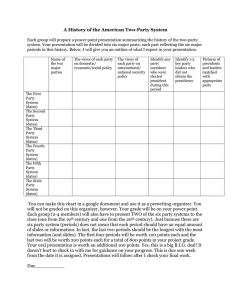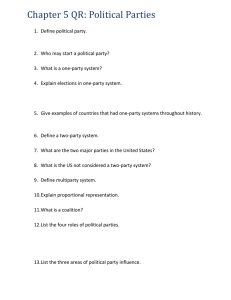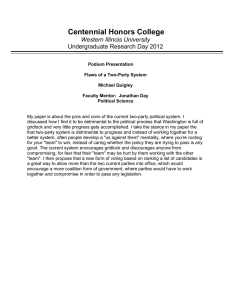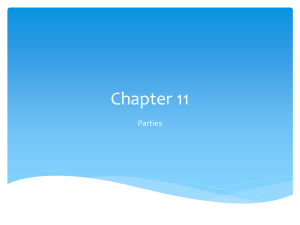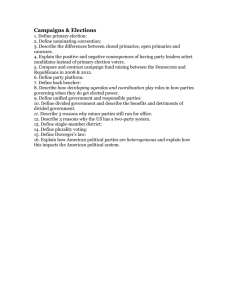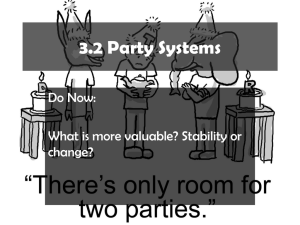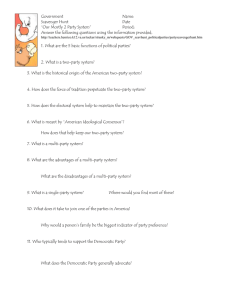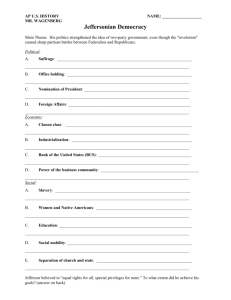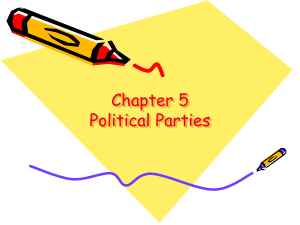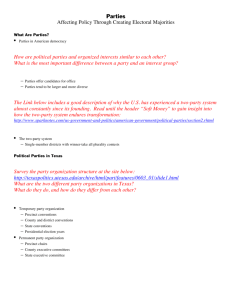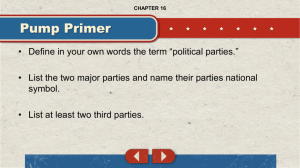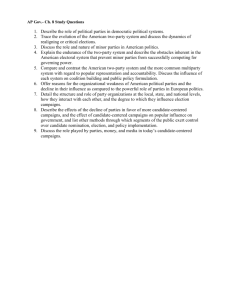chapter 5 section 2
advertisement
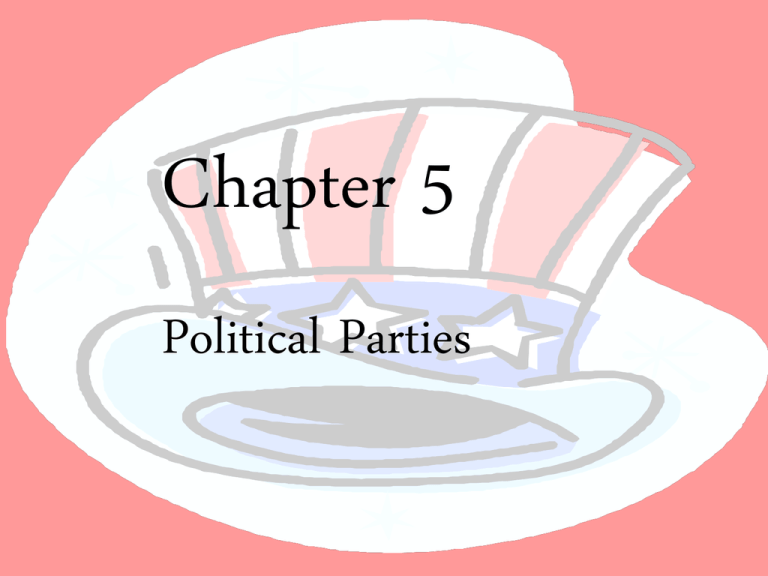
Chapter 5 Political Parties 5. Pluralistic Society – has several distinct cultures and groups 6. Consensus – general agreement 7. Multi-party – several major and many minor parties exist 8. One-party system – one major party,usually a dictatorship Section 2 Vocabulary 1. Minor party: less widely supported political party 2. Two-party system –having two major parties 3. Single-member districts- only one candidate is elected to office 4. Plurality – largest number of votes cast Section 2 The Two-party System Why a two party system? The nation started out with twoparties: the Federalists: and the Anti-Federalists Framers felt that parties were factions and agents of divisiveness. Thus, the Constitution has no provision for Political Parties Force of tradition America has a two-party system because it always has had one. Minor parties, lacking wide political support, have never made a successful showing, so people are reluctant to support them Certain features of gov’t, such as single-member districts, are designed to favor two major parties. People usually choose to vote for the viable choice, usually not a minor party candidate. Also, American election laws are shaped to preserve, protect and defend the twoparty system. Most Americans have a consensus on fundamental matters. Conditions that would spark several strong rival parties do not exist in the United States. Our nation has two parties that tend to be moderate and middle of the road. In order to win “the vote”, they usually differ slightly. Multiparty Systems Advantages • Provides broader rep. of the people. • Responsive to will of the people. • More choices at the polls. Disadvantages • Parties form coalitions to win, which dissolve easily. • Failure of coalitions can cause instability in government Only one party is allowed Modified-one party wins most elections 50’s,North=Rep Dictatorships South=Dem
